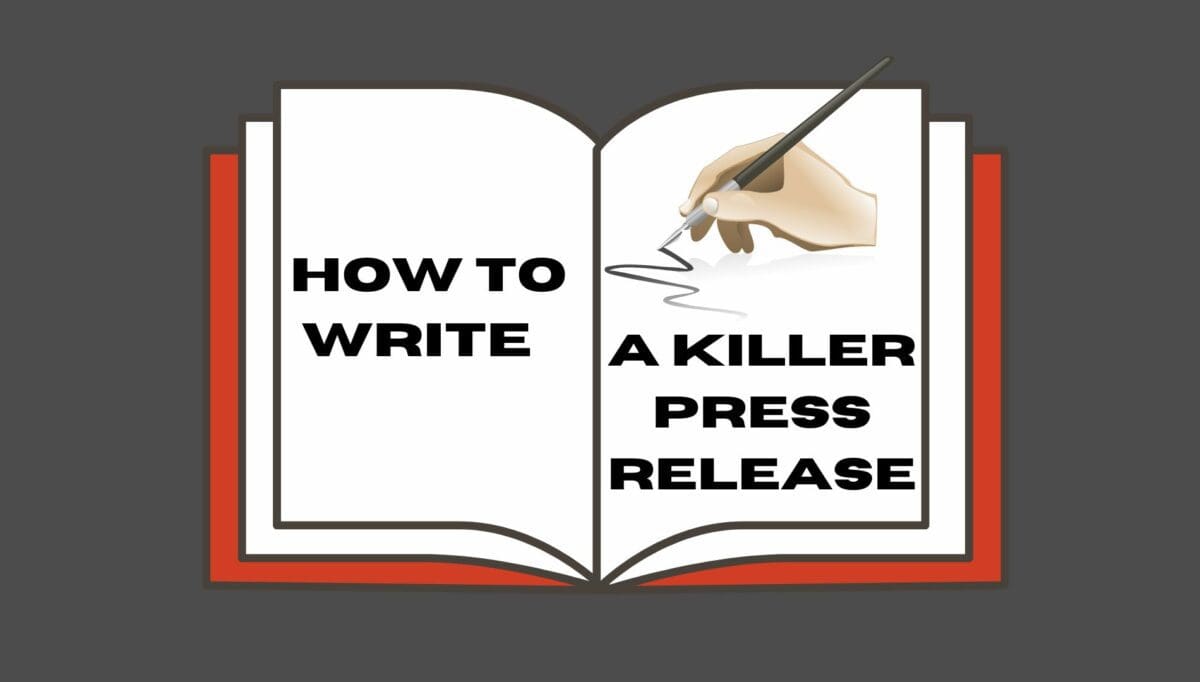Are you an independent artist who wants to add some credibility to your music? Or are you a music-lover who wants to contribute to the success of unknown artists that you love? Or perhaps you are a music producer who wants to release the records of artists that you have produced? Then knowing how to start a record label with no money is a must.
In this modern digital age, learning how to start a record label business is easier than ever before. It can be done almost instantly!
In this article, I’m going to talk you through the key tasks to get a new shiny record label up and running quickly, efficiently and legally.
Then the rest they say is up to you….. and great music.
Firstly, What Is A Record Label?
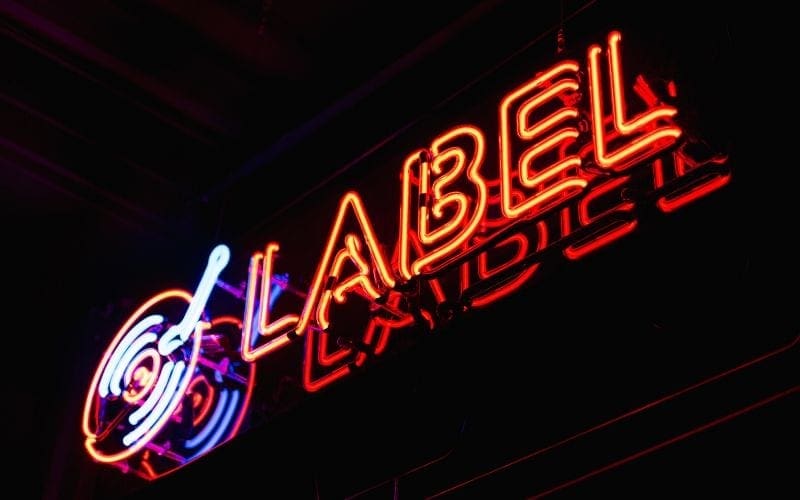
Well, it is essentially what it says on the tin – a ‘label’ that represents the music of artists. This can be to conduct business, such as distribution as well as find opportunities and invest money in them.
There are two types of music record labels: major and independent (indie).
There are only 3 major record labels in the UK and they are Sony, Universal, and Warner Music. These major labels are so big that they have their own in-house distribution, press, promotion, and generally huge budgets for artists.
A label pays for the promotions of each release, which of course costs money and accounts for the sales from its bank account back to the artist within set periods, normally at least twice a year (end of July and end of December).
Everyone else is considered to be an independent record label. Indies tend to outsource their promotion, press, and distribution via third parties. Their budgets can be really small, or just as big as a major, depending on the success of the label. Hugely successful indie labels include the likes of Domino Records and Rough Trade.
Either way, if you are thinking of setting up a record label, then you will be part of the indie record labels.
Step 1. Getting Started – What Is Needed To Start A Digital Record Label?
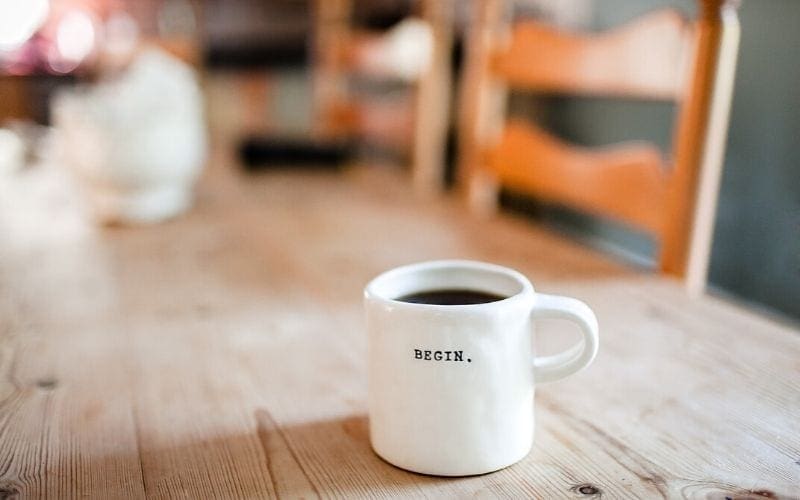
What will your label specialise in? What will it be known for?
The very first step is to think about what genre(s) of music your label will specialise in. It’s important to think about this first because the type of music you want to release will determine your label name and branding.
You might want to be a niche label and specialise in African-Blues. Or you might want a broader scope than that and release ‘alternative’ music. There are no rules on this, but it’s always best to release the music you personally love.
Also, the more you can define your label’s genre, the stronger your brand will be. So try to be imaginative and focused, rather than simply saying you are a ‘pop label’.
Step 2. Give Your Record Label A Name
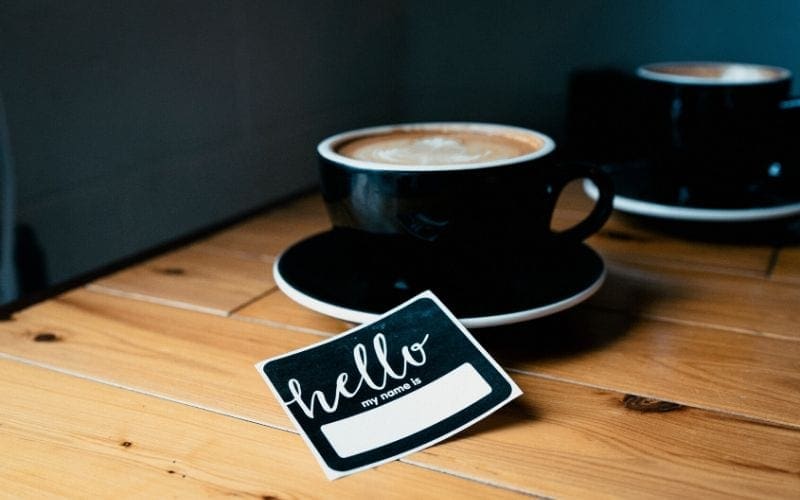
Now you need to think of a name for the label. Now, this might sound easy, but you’ll soon find that many of the good names are taken! You’ll need to think of something unique, that hasn’t been used by anyone else. Something you think accurately represents the type of music you want to release.
For example, calling your label ‘Death Metal Records’ when you intend on releasing Bubblegum pop won’t work! You can have a look for record label name generators online, see which ones fit your music and your brand, and then check if they’re available.
The best way to check whether a name is available is to check the Companies House database (for UK labels). This public database will list all of the active, and recently non-active, Limited companies in the UK. Simply go to the companies house database and type in the name you want to use to see if it’s available.
Now, if your desired name isn’t on there already, then that’s a great start! However, it doesn’t necessarily mean that the name isn’t being used by someone else as a sole trader or even by someone internationally. So do a google and social media search to see what you can find out. Another good way of seeing if someone has nabbed your name is to check whether your preferred web domain is available.
Step 3. What Type Of Business Will Your Label Be?
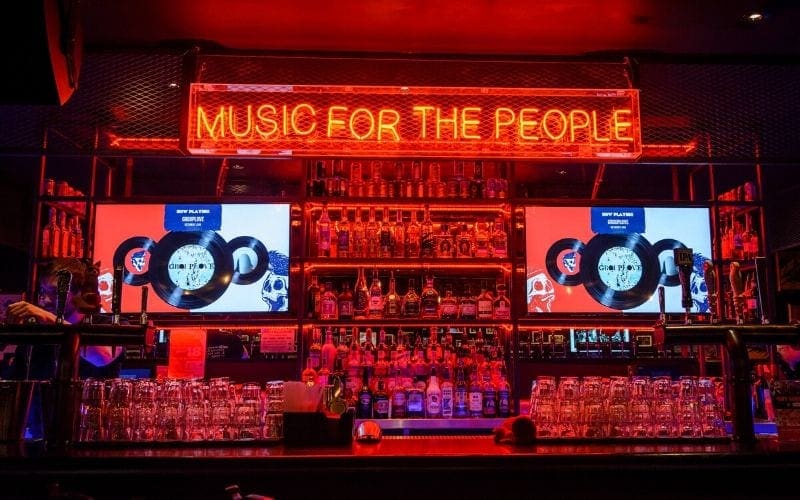
You’ll need to decide pretty early on whether you want to be a sole trader, a partnership or a Limited Company. If you opt to be a Limited Company, then your label becomes a separate entity to you and you’d have to file accounts to Companies House and they will be available for the public to view.
The pros of being a Limited Company are that your label name will be on the Companies House register, protecting your business name. It also protects your personal assets if the company were to fold. Not to mention that it adds more credibility to your label and shows prospective artists that you are a reputable company.
Or you could simply be a sole trader – that’s just you doing your thing (or with a partner) and submitting your self-assessment accounts each year. However, it will mean you are personally liable for any company debts if the company were to go under. If I were starting a brand new record label, I would personally opt for a sole trader or partnership rather than a limited company. If things start to do well then I’d register the company as a Limited company further down the line.
Step 4. Branding Your Record Label
Create A Brilliant Brand
Branding is crucial for any business. Firstly, you need a logo as it will go everywhere – on CD/vinyl sleeves, contracts, websites, and social media. It will define your label.
The style of the logo will be down to personal taste and also the type of music you will be releasing. If you take a look at various record label logos, you’ll find that many of them are quite simple. A lot of label logos are in a square box or circle with the label’s name in the text.
You might want something simple, or you might want something eye-catching. Either way, you should start thinking about style and colour schemes to help your designer.
Try these guys for getting a logo:
- Run a logo design contest on 99 Designs
- Get a budget logo design done on Fiverr
- Create your own using Canva
Step 5. Create An Online Presence
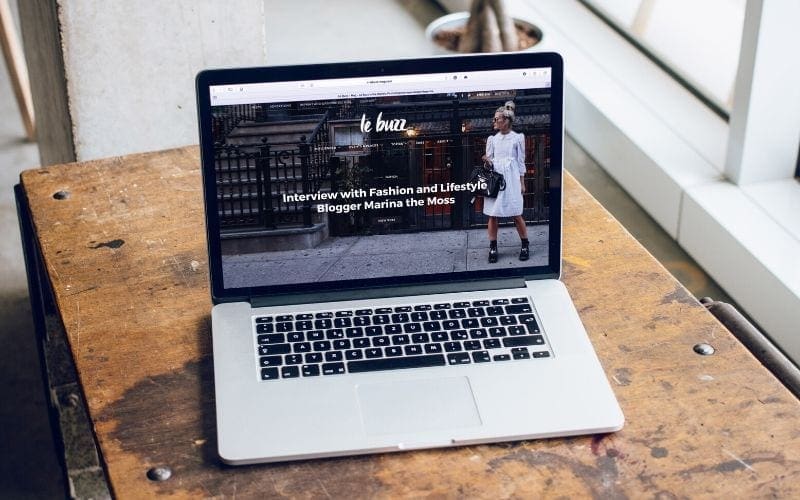
The most logical next step is to create some social media accounts. The absolute must-haves are Instagram, Facebook, and Twitter. You should also create a Soundcloud account for your label. Make sure you post once a day on these sites and use the relevant hashtags to generate more traffic to your accounts.
You will also need a website. Try searching for a domain name (there are many websites out there that can help you). ‘.com’ websites are often better for record labels as their work is often international, however, these are usually more expensive.
How To Start A Music Label?
Get a Distributor
As a label, your key function is selling records. So, you will need a distributor to deliver your artist’s records to the stores. Most new labels can start off with a digital distributor. This will ensure that your music is delivered to all the major online stores/streaming sites.
Getting your music on shop floors as a physical product (CD/vinyl) will require a different kind of distributor. These kinds of deals are harder to get because the costs are higher and the risk is bigger. As a new label, our advice is to just focus on getting a digital distributor.
Have a look at our in-depth article on the best music distribution services to decide which one to go for. Each of these distributors offers delivery of your music to pretty much the same stores, in a similar timeframe. Which one you choose will depend on pricing and which one suits you best, so check them out and see which appeals to you the most. Broadly speaking, they all perform the same function.
If you’re interested in working with us here at Мusic Gateway, we also actually offer digital distribution as part of all of our account types. Take a look at our free music distribution offering – we look forward to working with you! We can also help with many other elements such as music promotion, a demo submission tool to help you organise your demos and much more!
Joining The Relevant Trade Bodies (BPI, AIM, etc)
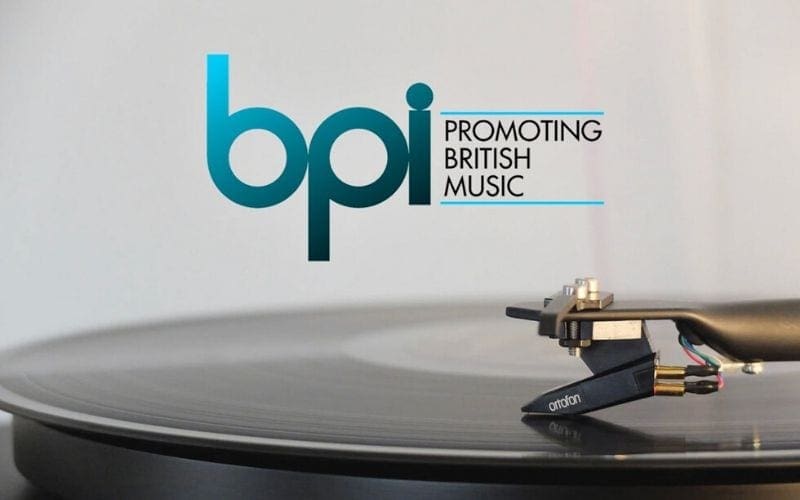
Now that your label is starting to shape up nicely, you should consider joining your country’s trade representative. In the UK, there are two trade bodies that represent the rights and interests of UK record companies: The British Phonographic Industry (BPI) and the Association of Independent Music (AIM). The BPI tend to represent the major labels, and AIM represents the indie labels. As an indie label, you can join both, however.
Joining these trade bodies can be hugely beneficial to any new label. First of all, you get access to free events so you can learn more about the industry. On top of that, they’re also great networking opportunities!
If you are a member of the BPI then you are part of the ‘Brit Awards Voting Academy’. This means that you can vote for who wins awards at The Brits (major kudos alert!)
They also offer legal advice and can help you with a range of legal issues. Plus, having your label listed in their membership directories adds even more credibility to your business ideas.
You can apply for membership in these companies here:
Join The Relevant Royalty Collection Societies
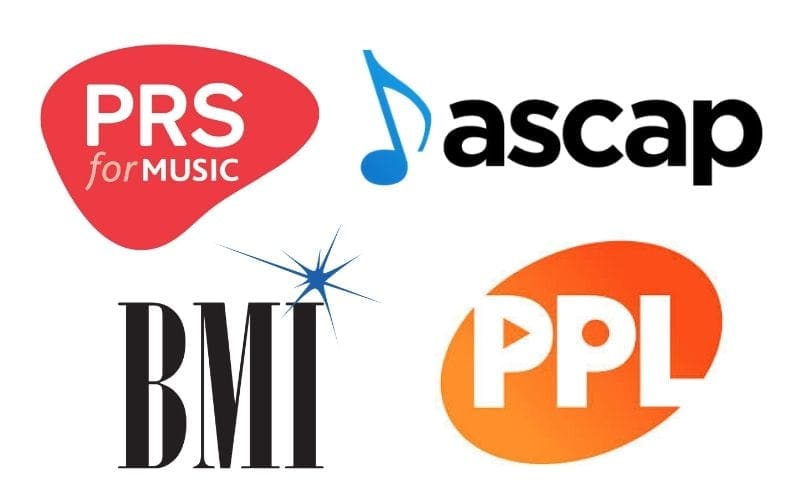
You should also register with the relevant royalty collection societies. When your artists earn money from the exploitation of their records, whether that be via their songs being played on the radio, in clubs, on TV or in shops, those royalties have been collected on behalf of the artist. Companies exist in which to do that on the artist’s behalf. In the UK, the key royalty collection societies are:
- Performing Rights Society (PRS): The PRS pays royalties to members when their work is performed, broadcast, streamed, downloaded, reproduced, played in public or used in film and TV; and
- PPL: The PPL gives licenses to radio stations, TV broadcasters and digital media services to play recorded music in the UK as part of their programming.
They also give licenses to music suppliers to copy recorded music for in-store music systems, jukeboxes, compilations for exercise classes or in-flight entertainment systems.
**In the US the equivalent companies are ASCAP and BMI, which you can read in-depth about in our ASCAP vs BMI vs SESAC guide.
Subscribe To Music Week
As a record label, you will need to get ahead of trends and keep up with the latest changes and policies that affect the industry. You will also need to have a good grasp of the music charts – what’s selling well, and what isn’t.
A great place to start is to subscribe to Music Week which is a leading trade media magazine for the UK music industry and is essential reading for anyone who needs to understand the business of music.
If you’re looking to learn more about the music industry, our blog is constantly being updated with how-to articles, reviews of different services and more. Feel free to get in touch to let us know if there’s something you’re keen to learn about that we can help with.
You can also get yourself listed in the Music Week directory which is issued in hard format every year and features all the worthy record labels, publishers, managers, promoters etc. Not only will it be a good resource for you to find decent companies to work with, but you can also get yourself listed as a label in the directory.
Building An ‘Industry Experts’ Virtual Team

The next important step is to build your team! By team I don’t mean a team based in an office somewhere, I mean a virtual team of industry experts that work directly with you and your artists to deliver the best possible product:
Your core virtual team should consist of:
- A Music Lawyer
- A Music Producer
- Your chosen Digital Distributor
- A PR Company
- A Radio Plugger
- Accountant
- Music Video Director
Make sure you do your research to find the most suitable producers, PR companies and lawyers for your business structure & business planning. Each of those listed above will play a huge part in developing your label and protecting its interests. So you need to make sure that the people you work with will fit the core values of your label.
If you’re not ready to get a team together however and just want a bit of help starting out, you can always have a look at working with record label services.
Finding Artists To Sign To Your Label

So this is where the fun really begins! Firstly, you need to set up an A&R function at your record label. A&R stands for Artist and Repertoire and is probably something you have heard a lot!
Every record label typically has A&R Scouts and an A&R Manager. It is the job of these A&R people to hunt for suitable artists for their labels.
As a new label, you might decide to bring in some young and energetic music lovers who are willing to go and scout some talented artists for a cut of the artist’s sales. Or, you might decide to do this yourself for now.
What Type Of Artist Should You Go For?
These days, record labels tend to only sign artists who already have a growing fanbase. That is simply because of the amount of investment you need to put into an artist, and if they don’t have any fans then the likelihood of the label recouping their costs is limited. Now labels look for artists who are already selling records themselves and doing well, with the media showing an interest and their local gigs are sell-outs.
As they are already a success as an independent artist, you will need to bring something to the table which shows that you can take their career to the next level. What can you offer them that they can’t do themselves? Is it more financial investment in PR and marketing? Is it the resources to help develop them whilst they concentrate on the creative side of things?
Where Do You Find Really Good Artists To Sign?

This will take some work but a lot of record labels spend time scouting through Spotify. Labels will typically look for artists who are racking up big streaming numbers. The labels tend to look for artists who are generating 500k streams and upwards, per song, in the first couple of weeks of release. Finding these kinds of artists will require you to look at playlists.
Start by looking at Spotify’s official playlists to see if anyone takes your fancy. Think about your label’s style and search for playlists that feature the style of music you want to release. You will also need to make sure they don’t have a label already!
Another option is for you to contact reputable management companies to see which artists on their roster are causing a bit of a buzz and who might be a good fit. Often, an artist will only have a good manager once they are starting to become successful, but they might not yet have a label.
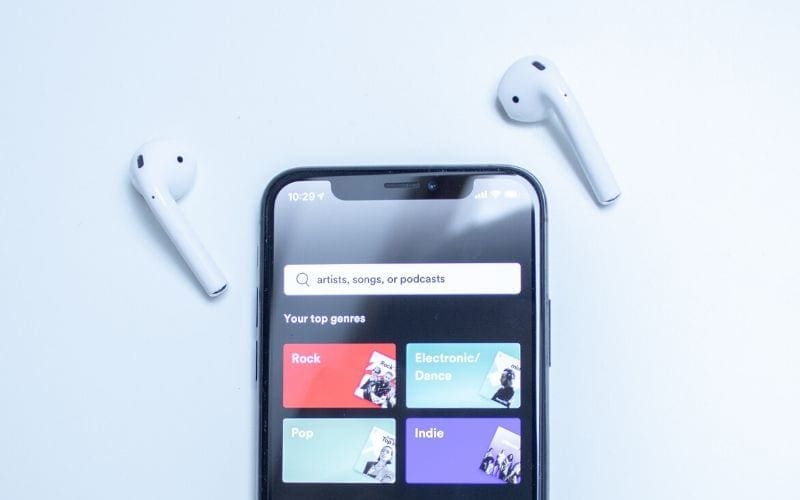
It is often the job of the manager to get their artists record deals (major labels only deal with managers when considering new signings) and so you will find that you’ll be working with managers quite a lot!
The other old-fashioned way to scout for artists is to go to gigs. Most traditional A&R record label scouts will request to see an artist live if they are interested in signing them. That is to make sure they are good performers and to see whether they are really selling out local shows. This is bread-and-butter A&R stuff, so well worth a punt when on the lookout for new artists.
Drawing Up Contracts Via A Music Lawyer

Now let’s say you’ve found your artist(s) and you want to keep them on your label before someone else snaps them up. You’ll need to get a recording agreement in place.
As tempting as it might be – don’t grab a generic contract off the internet and tweak it yourself. And certainly don’t go to any bog-standard lawyer. You need a Music Lawyer as this stuff is very specialist.
Legal contracts between you and your artists are absolutely critical. You need to agree and sign on the royalty split between the artist/label as well as set out the artist’s responsibilities for delivering a certain number of albums to you, and by which date, including the territories this covers.
Your lawyer will advise you but typically a label would offer an artist a 2-3 album deal. Or, if the label is not quite convinced the artist is ready yet, offer them a ‘production deal’ where you save money and time is spent developing the artist without a full-blown album commitment in place.
With any record label contract, you will want your artists to sign up on an ‘exclusive’ contract so that they can’t sign with other labels. You are putting in a lot of time, effort and money into the artist and the only way to reap the rewards of their success is to have them exclusively signed to your label.
How Do Record Labels Make Money?
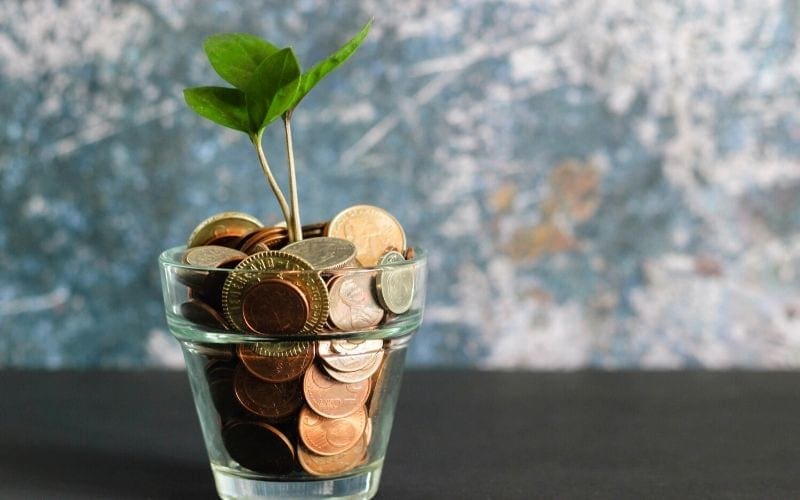
So you may be wondering how to make a record label profitable and a viable music business.
Most of your income will come from royalties. Typically labels will take around 30-50% of an artist’s gross income, and you will be able to recoup any monies you have paid out for recording, producers, touring, promotion and marketing etc, right down to the packaging of CDs and paying for their burgers on tour. Promotional costs can make up the largest portion of your investment.
Income can come from a range of sources such as record sales/streams, video views, concerts, merchandise, publishing, sync licensing (deals to place music in film/TV/games). But it is now well established that the only way an artist or a label can earn a decent amount of money regularly is through touring and merchandise. So make sure these are key considerations for any signing you have.
As the label, all monies for the artist will be paid directly to you. And it is your responsibility to work out your cut, and then pay the artist their remaining monies. Labels usually do this twice a year to coincide with the payments from the likes of the PRS and PPL.
You, as the label, will be responsible for issuing a royalty statement to the artist detailing all the monies that have been earned for each record. So, develop a royalty statement template and keep a note of the accounting dates for your artists.
Finally Starting A Label: Checklist
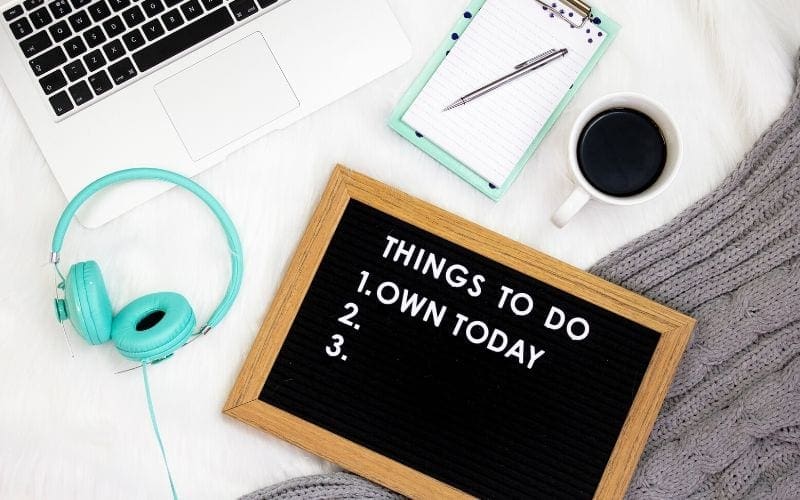
- Decide what you’ll specialise in
- Give your record label a name
- Decide what type of business your label will be
- Create a brand
- Create an online presence
- Get a distributor
- Join the relevant trade bodies
- Join the relevant collection societies
- Get ahead of industry trends
- Build a team
- Find good artists to sign
- Draw up contracts
- Make money!
As you will see, starting an independent record label is fairly easy in terms of branding, getting a digital distributor, and getting on social media and websites. It’s the scouting of brilliant artists and the major financial investment that is the biggest challenge.
Independent labels will always have to take risks, which is why so many labels look for artists who are already successful. And that would be a good place for you to start. Start by signing up only 1 or 2 artists and work with them closely and as a team to build both your label and their music careers.
Now You Know Everything About How To Start A Record Label LLC
We hope you found this guide on how to start a successful independent record label useful! If you did, please share it with others so that it may also be able to help. We’re here to help publishing companies as well as creatives so please let us know if there’s any way we can help.
Final FAQ
How much does it cost to set up a record label?
The cost of setting up a record label can vary greatly depending on the scope of the label and the resources available. Some of the costs associated with setting up a record label can include studio rental, equipment, legal fees, marketing, distribution, and personnel.
Generally, it is estimated that setting up a record label can cost anywhere from $10,000 to $50,000.
How hard is it to start a record label?
Starting a record label can be a difficult and complex process. It requires knowledge of the music industry, legal requirements, and financial considerations. You will need to obtain licenses, register with a copyright office, secure funding, and create a business plan.
You will also need to network with other professionals in the industry and build relationships with artists, producers, and other industry professionals. Additionally, you will need to develop marketing strategies, create a website, and find distribution outlets for your releases.
Is it worth starting a record label?
Starting a record label can be a rewarding and profitable venture, but it can also be a lot of hard work. It requires a lot of knowledge and resources, and it can be difficult to break into the industry.
If you have the necessary resources and knowledge, and you are passionate about the music industry, then it may be worth starting a record label.








